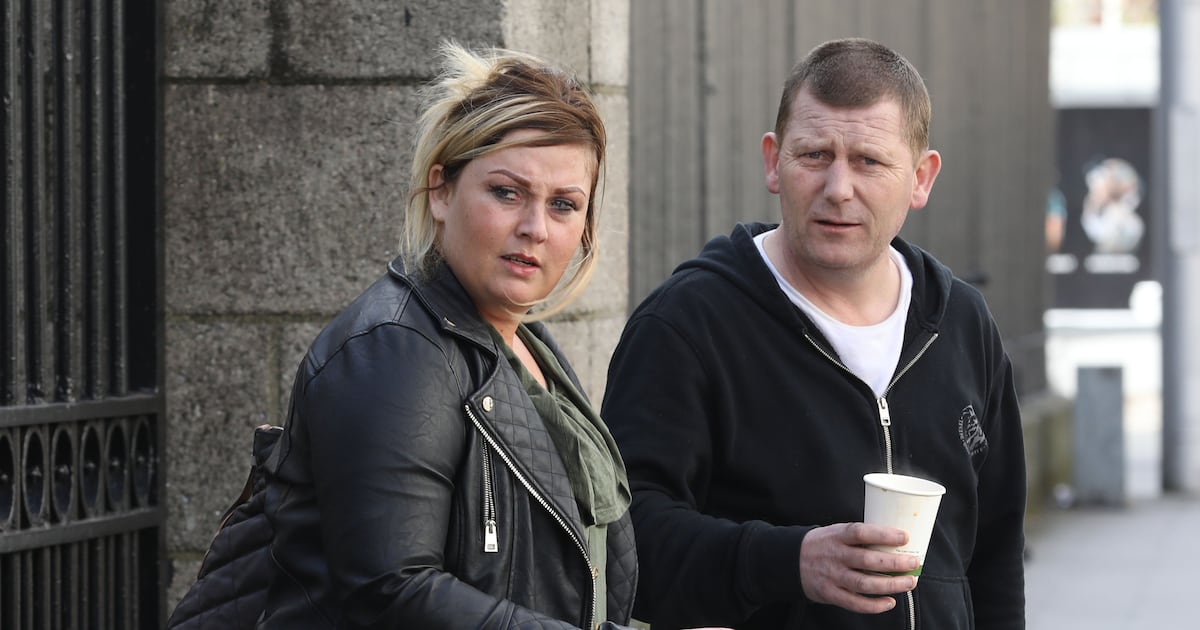A Limerick man and his second wife have lost appeals arising from a High Court decision that the purchase of two properties were funded or partly funded by his drug-dealing.
The Court of Appeal also rejected their appeal over a finding that €23,000 cash seized from their flat was drug-dealing money.
Dermot Calvert, born in 1970, was the “primary target” of an investigation by the Criminal Assets Bureau (Cab) into the assets, Mr Justice Senan Allen noted in the Court of Appeal judgment.
Mr Calvert lives with Martina Harty in a single bed-sitting room with a bathroom built in the yard of a house at Singland Crescent, Garryowen, Limerick, occupied by his daughter Stacey Calvert, her children and a younger sister.
Cab seized cash sums amounting to €23,005, plus £30, during two searches of their flat in July 2019 and June 2021. A Volkswagen Passat car registered in Stacey Calvert’s name from late August 2021 until May 5th, 2022 was also seized.
The bureau accepted some money used to buy the Singland Crescent house in late 2014/early 2015 was provided by Stacey Calvert from proceeds of a personal injuries claim. It disputed that the €17,250 said to have been paid for the house, of which Ms Calvert paid €14,000, was the true purchase price but the High Court found it had not established that was the case.
The High Court found the January 2016 purchase of a property at Cloughan Court, Garryowen, registered in Mr Calvert’s name, was funded by his drug-dealing, but it held that Cab failed to establish that €13,000 was not the true price paid for this property.
Mr Calvert and Ms Harty planned to renovate this dilapidated property for use as their family home. Some works were done, but the Cloughan Court premises remains uninhabitable.
Last January, the High Court found the Singland Crescent and Cloughan Court properties, cash and car were acquired in whole or in part, directly or indirectly, with proceeds of crime.
Cab is allowing Ms Calvert and her children to remain rent-free in Singland Crescent for seven years and has given her an equitable claim for 20 per cent of the eventual proceeds of its sale. Her father and Ms Harty can live in their flat until the entire property is sold.
A Cab receiver had undertaken not to sell the uninhabitable Cloughan Court pending Mr Calvert and Ms Harty’s appeals, in which they claimed money at issue came from legitimate sources, including insurance claims.
In the three-judge court’s judgment on Monday, Mr Justice Allen said the uncontested evidence was Mr Calvert’s recorded income for his entire life was €161.
Mr Calvert previously lived in another house in Garryowen with his ex-wife Jacqueline Calvert, who received social welfare payments for their 15 children. He got a care allowance from 2002 to 2017 and owned a number of motor vehicles over the years.
When the Cab investigation began in 2019, he was living with Ms Harty, born in 1987, and they married in 2023. She had no visible source of legitimate income after social welfare payments to her stopped in 2017.
The Court of Appeal found no error in the High Court’s rejection of his claim the money to buy Cloughan Court came from social welfare allowances, insurance claims and cash payments for “nixers”.
It upheld the rejection of Ms Harty’s claims that the seized cash came from insurance payouts and the sale of a camper van. She claimed she was saving cash for her wedding to Mr Calvert and that 2,000 small plastic bags found during Cab searches were for everyday home use.
Mr Justice Allen said the evidence did not support claims Cloughan Court was to be the home of Mr Calvert, Ms Harty and her five children, who currently live with a relative of hers. Even if it did, her disappointment in not having it as a family home could not be a factor in deciding what to do with it, he said.
